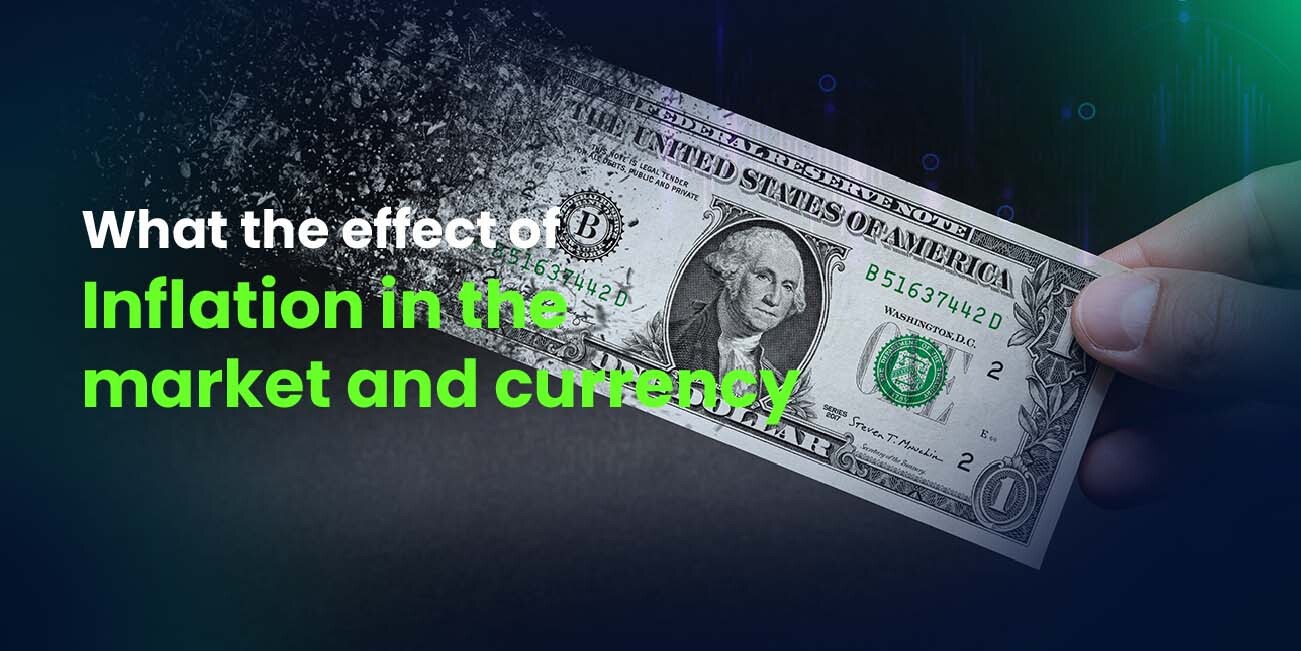Inflation can have a number of effects on the market and currency. Some of the main effects of inflation on the market and currency include:
- Decreasing purchasing power: Inflation can decrease the purchasing power of a currency, which means that the same amount of money will buy fewer goods and services over time. This can lead to a decrease in consumer demand, which can affect the performance of businesses and the overall economy.
- Affecting interest rates: Inflation can impact the level of interest rates in an economy. If the central bank perceives that inflation is getting out of control, it may raise interest rates to try to curb demand and reduce inflationary pressures. Higher interest rates can make borrowing more expensive, which can slow economic activity.
- Impacting investment decisions: Inflation can affect the return on investment for different asset classes. For example, if the rate of inflation is higher than the interest rate on a bond, the bond’s purchasing power may decrease over time. This can influence investors’ decisions about where to allocate their assets.
- Changing relative prices: Inflation can cause the relative prices of different goods and services to change. For example, if the price of one good increases faster than the overall rate of inflation, it may become relatively more expensive compared to other goods.
- Weakening currency: If a country’s inflation rate is significantly higher than the inflation rates of other countries, it may lead to a decline in the value of its currency relative to other currencies. This can make the country’s exports more competitive, but it can also make imports more expensive, which can affect the overall balance of trade.
It is important to note that moderate
levels of inflation are generally considered beneficial for an economy, as they
can stimulate growth and investment. However, high levels of inflation can be
harmful and may lead to economic instability.

